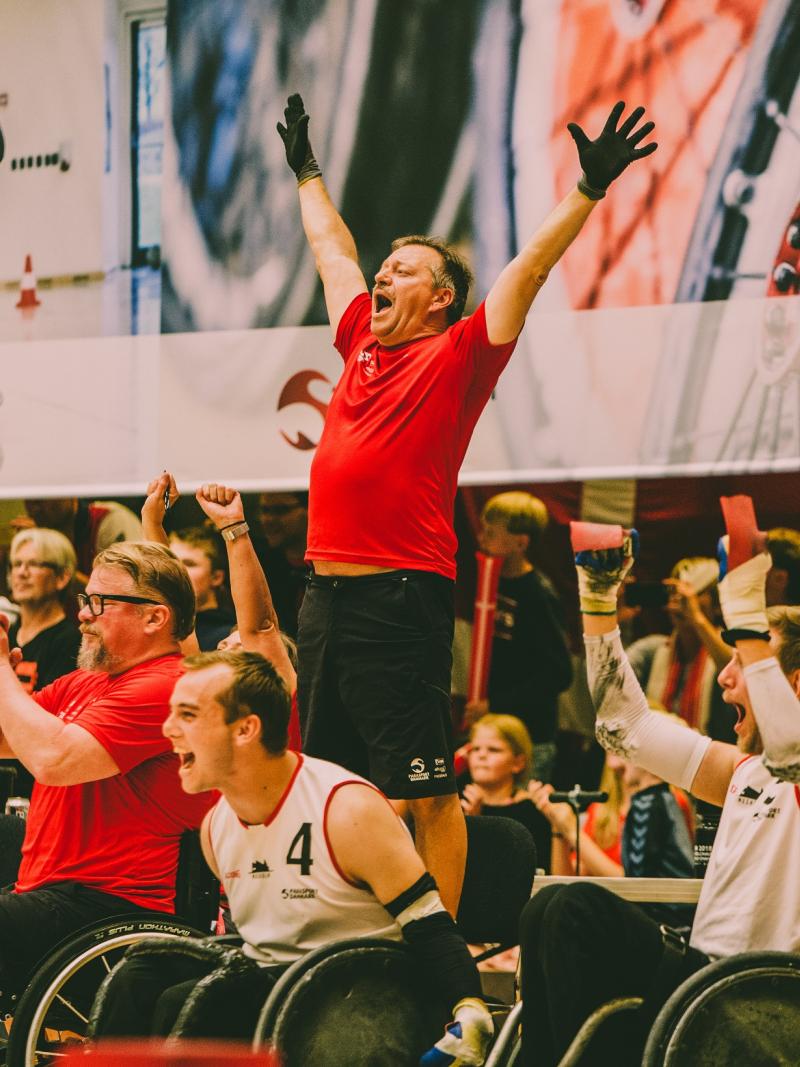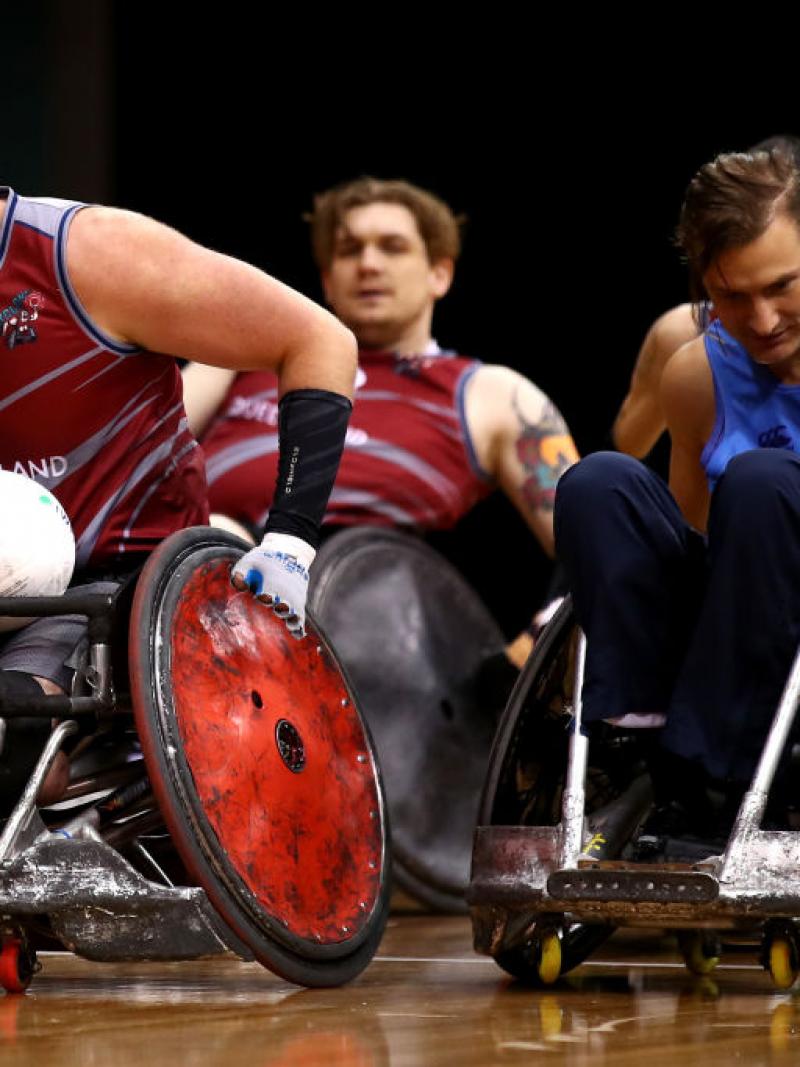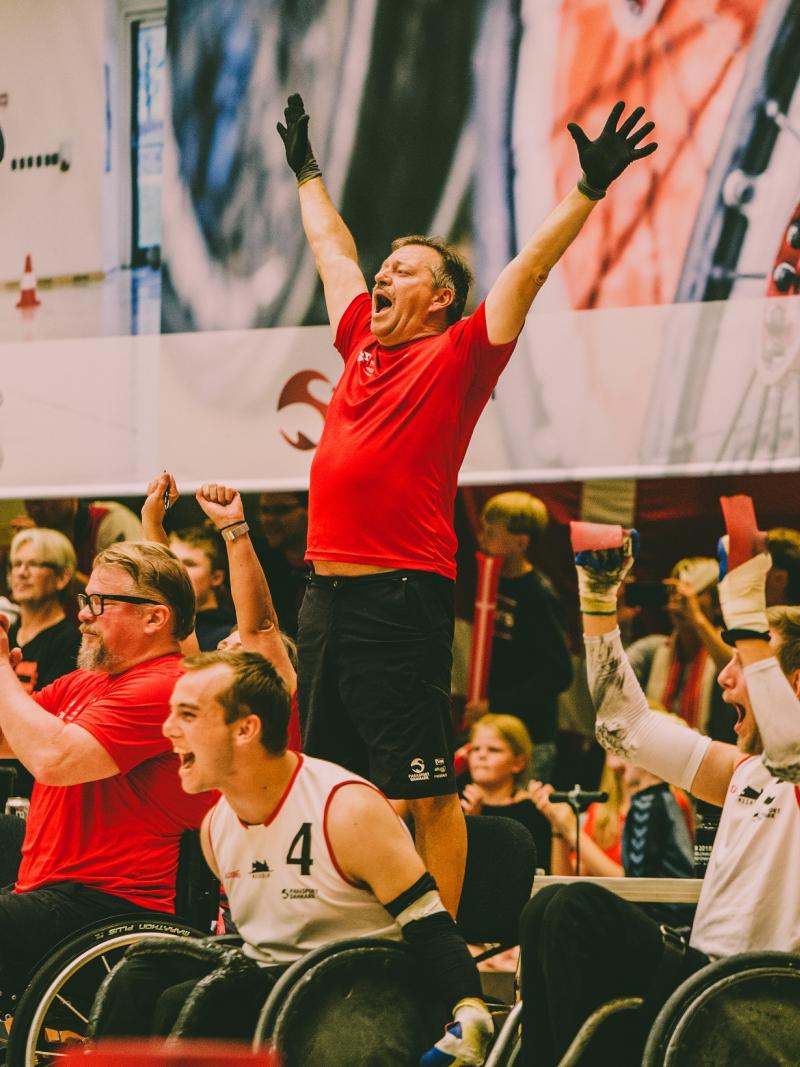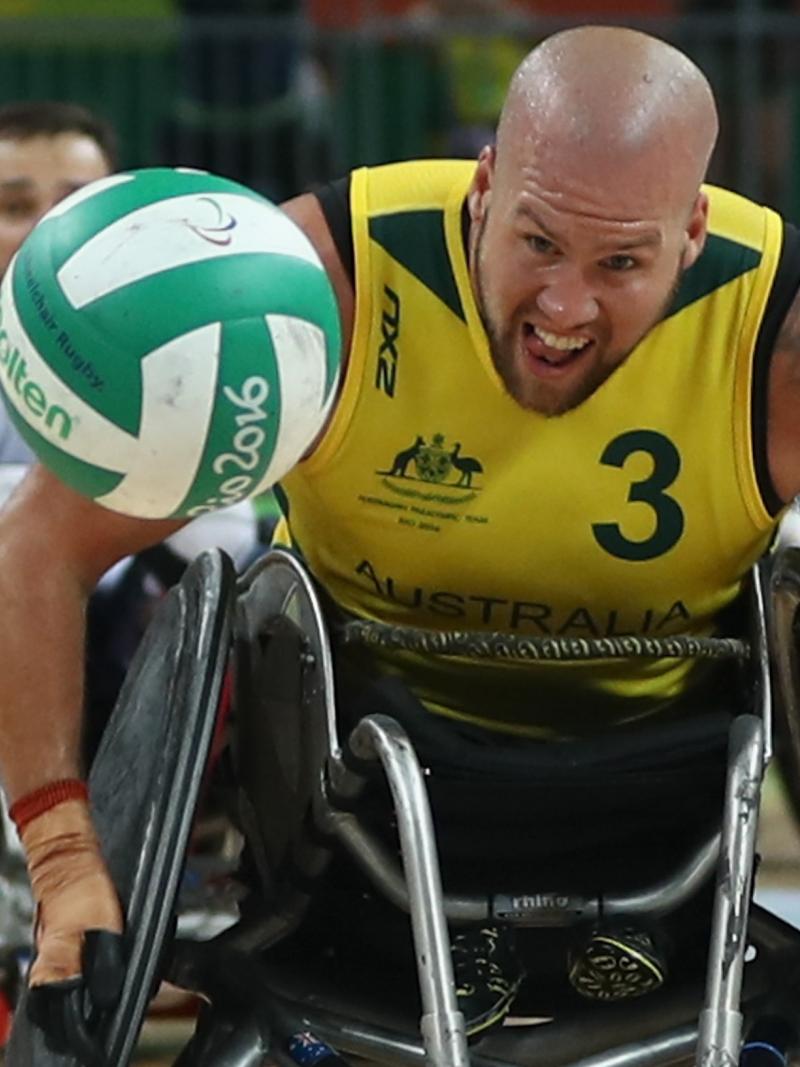Kylie Grimes on being a woman in wheelchair rugby
The British Paralympian is one of the few women playing the mixed gender sport 30 Aug 2020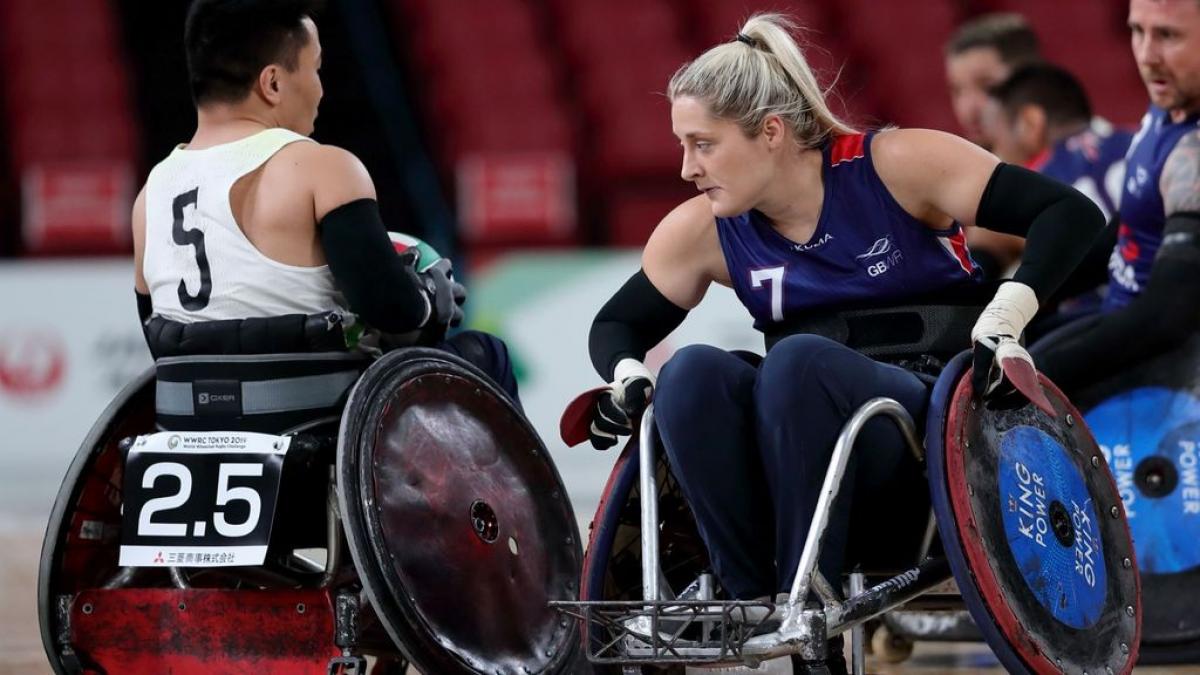
Great Britain's Kylie Grimes has to correct some people when she explains her sport.
“Everyone assumes I play in the women’s team,” the wheelchair rugby player said. “They talk to me about the men’s team as a separate team and I have to explain it’s a mixed gender sport.”
Wheelchair rugby, formally known as ‘Murderball’, has mixed gender teams of four players and has been part of the Paralympic Games since 2000. There are not many women who rise to the top of the game, and Grimes is proud to be one of the few.
“There are not many sports where men and women can play in the same team and I love the atmosphere and competitive edge that it brings,” the 32-year-old said.
“The fact it’s male dominated has never put me off. It made me more determined to play at international level. It was a challenge to me that I needed to take on because we have amazing qualities that can work well with the men to create a great team. I’m treated no differently, I’m a team member and that’s exactly how it should be.”
Like all Paralympic sports, wheelchair rugby players are classified by their level of impairment. Each athlete is assigned a point value between 0.5 and 3.5 that represents the level of function they have in their arms.
Classification is tested by observations of an athlete’s ability to throw and catch a ball and their ability to move in their wheelchair. Occasionally, classification also includes a bench press, where athletes are asked to demonstrate their upper arm strength and mobility.
Only eight points per team is allowed on the court, but 8.5 points is permitted when one or more team members are female.
Having been an athlete and show jumper as a child and young adult, the Farnham-based athlete said she always had ambitions to represent her country in sport.
Within just three years of her spinal injury in 2006, which left the then 18-year old Grimes paralysed from the neck down, she returned to competitive sport by cycling 450km from Vietnam to Cambodia to raise money for charity.
Soon after, Grimes started playing wheelchair rugby for London Wheelchair Rugby Club after she saw the team training in Stanmore, London.
It quickly became clear to rugby-mad Grimes that this was the sport for her. “I was hooked on the fast pace and extreme full contact between the rugby chairs”, she says. “I had to play this sport.”
Despite initial concerns about the physicality of the game, Grimes’s family all encouraged her goals to become a full-time athlete.
Three years later, Grimes was one of just two women to play wheelchair rugby at the 2012 Paralympic Games, the other being Belgium’s Bieke Ketelbuters.
Team GB finished the Games fifth, with Australia clinching the gold medal spot.
As ambitious as ever, Grimes left wheelchair rugby in 2014 to pursue Para athletics. “I wanted to try an individual sport for a while to see how well I could do on my own. I always missed the team, but I kept playing for London Wheelchair Rugby Club the whole time I was away.”
Despite coming fourth in the Rio 2016 Paralympics, and fifth in the 2017 World Championships in London, Grimes returned to the national wheelchair rugby team in 2018 with the ambition to make the squad for the Tokyo 2020 Paralympic Games next year.
Despite the year delay, Grimes has the sizeable ambition for Team GB to win gold at Tokyo 2020, where 15 members of her family will be watching every game.
Now a motivational speaker, Grimes is on a mission to get more people involved in the sport and realise their potential.
“Sport has saved my life. My experiences since 2006 — and particularly my journey back to sport, teamwork, and a strong relationship with my body — have helped me to overcome many obstacles in my life and sharing the lessons I’ve learned to help motivate and inspire others is a huge honour."
Grimes has one clear message to any young people looking to start wheelchair rugby: “Go for it! It’s honestly an amazing sport and the team camaraderie is like nothing else. You’ll never regret it”.

 Facebook
Facebook
 Instagram
Instagram
 Twitter
Twitter
 Youtube
Youtube
 TikTok
TikTok
 Newsletter Subscribe
Newsletter Subscribe

